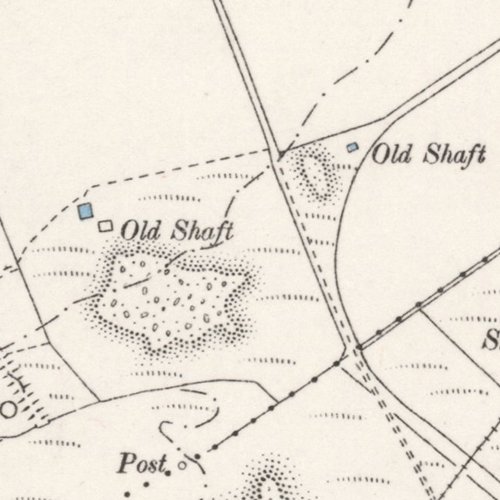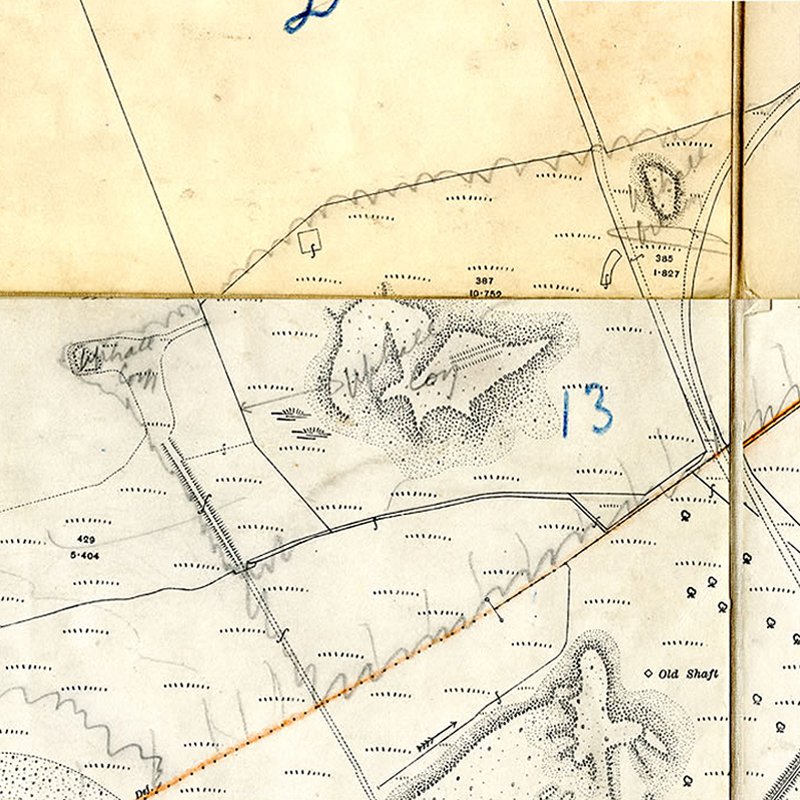- Aberdeen Oil Works
- Addiewell Oil Works
- Almondhill Oil Works
- Annick Lodge Oil Works
- Arden Oil Works
- Armadale Oil Works
- Auchenheath Oil Works
- Avonhead Oil Works
- Balgray Oil Works
- Ballat Oil Works
- Bathgate Oil Works
- Bathville Oil Works
- Bellsdyke Oil Works
- Bellsquarry Oil Works
- Benhar Oil Works
- Binnend Oil Works
- Birkenshaw Oil Works
- Bishop Street Oil Works
- Blackburn Oil Works
- Blackstone Oil Works
- Blackstoun Oil Works
- Blochairn Oil Works
- Boghall Oil Works
- Bredisholm Oil Works
- Breich Oil Works
- British Asphalte Oil Works
- Broxburn Oil Works
- Broxburn - Bell's Stewartfield Oil Works
- Broxburn - Albyn Oil Works
- Broxburn - East Mains Oil Works
- Broxburn - Greendykes Oil Works
- Broxburn - Hallfarm Oil Works
- Broxburn - Hutchinson's Oil Works
- Broxburn - Poynter's Oil Works
- Broxburn - Steele's Oil Works
- Broxburn - Steele's Stewartfield Oil Works
- Buckside Oil Works
- Burngrange Oil Works
- Calderbank Oil Works
- Canalbank Oil Works
- Champfleurie Oil Works
- Clippens Oil Works
- Cobbinshaw North Oil Works
- Cobbinshaw South Oil Works
- Coneypark Oil Works
- Craigie Oil Works
- Crown Point Oil Works
- Dalmeny Oil Works
- Deans Oil Works
- Doura Oil Works
- Drumbow Oil Works
- Drumcross Oil Works
- Drumgray Oil Works
- Dryflat Oil Works
- East Fulton Oil Works
- East Hermand Oil Works
- Eldin Oil Works
- Falkirk Oil Works
- Fergushill Oil Works
- Forthbank Oil Works
- Forth & Clyde Oil Works
- Gavieside Oil Works
- Grange Oil Works
- Grangepans Oil Works
- Greengairs Oil Works
- Hareshaw Oil Works
- Hartwood Oil Works
- Hawick Oil Works
- Hermand Oil Works (1866)
- Hermand Oil Works (1883)
- Holmes Oil Works
- Hopetoun Oil Works
- Hurlford Oil Works
- Inkerman Oil Works
- Inverkeithing Oil Works
- Kilrenny Oil Works
- Kilwinning Oil Works
- Kirkmuirhill Oil Works
- Kirkwood Oil Works
- Lanark Oil Works
- Lanemark Oil Works
- Levenseat Oil Works
- Limerigg Oil Works
- Linwood Oil Works
- Loanhead Oil Works
- Lochburn Road Oil Works
- Lochgelly Oil Works
- Longrigg Oil Works
- Magdalene Oil Works
- Methil Oil Works
- Millburn Oil Works
- Nettlehole Oil Works
- Niddry Castle Oil Works
- Nitshill Oil Works
- Oakbank Oil Works
- Palacecraig Oil Works
- Pathhead Oil Works
- Patterton Oil Works
- Pentland Oil Works
- Philpstoun Oil Works
- Port Dundas Oil Works
- Possil Oil Works
- Pumpherston Oil Works
- Raebog Oil Works
- Riggend Oil Works
- Rochsoles Oil Works
- Rochsolloch Oil Works
- Roman Camp - Almondfield Oil Works
- Roman Camp - Cawburn Oil Works
- Roman Camp Oil Works (1892)
- Roman Camp - Shale Oil Works
- Rosebank Oil Works
- Roughcraig Oil Works
- Rumford Street Oil Works
- Seafield Oil Works
- Shawsburn Oil Works
- Sheepford Locks Oil Works
- Shettleston Oil Works
- Shotts Oil Works
- Stand Oil Works
- Stanrigg Oil Works
- Stonehouse Oil Works
- Straiton Oil Works
- St. Rollox Works
- Swinehill Oil Works
- Tarbrax Oil Works
- Uphall Oil Works
- Uphall - Railway Oil Works
- Uphall - Wyllie's Oil Works
- Vulcan Chemical Works
- Wardend Oil Works
- Wattston Oil Works
- Westfield & Capeldrae Oil Works
- Westwood Oil Works (1941)
- Westwood Oil Works (1866)
- Whitebog Oil Works
- Whitehill Oil Works (Lanarkshire)
- Whitehill Oil Works (Midlothian)
- Whiterigg Oil Works
- Woodhall Oil Works
Boghall Oil Works

Redwood records:
"Sterlaw oil works, proprietors Meldrum, McLagan & Simpson, located at Sterlaw near Bathgate, started 1865 and abandoned in 1875 - Became property of Uphall Oil Co. in 1871".
Intriguingly he then lists; "Sterlaw Oil Co., operating between 1867 and 1872", suggesting a separate operation on the Starlaw site. Nothing is known of this, and it might represent a transcription error on behalf of Redwood's publishers.
Boghall oil works were established in about 1868 by Edward Meldrum, in partnership with the Benhar coalmaster George Simpson. Until 1864 Meldrum had been in partnership with James Young and Edward Binney and was responsible for technical operations at the Bathgate Chemical Works.
Boghall was a sizeable crude oil works, which by 1872 employed 220 staff. It was linked to the Edinburgh and Bathgate railway by a branch railway allowing crude oil was transported to Uphall for refining. The works were served by Starlaw Pit, scene of a major disaster in 1870 and various other shale and coal workings. Housing for workers was provided at Starlaw Rows.
Ownership passed to the Uphall Mineral Oil Company Ltd in 1871, and subsequently to the Uphall Oil Company Ltd. Oil production appears to have ceased in the late 1870's, although the Uphall Oil Co. Ltd. continued to mine shale in the area for many years.
No known plan exists that shows the works in operation, and its location has been presumed from the pattern of waste ground shown in the 1897 OS map. This site was later partly buried by the spent shale bing from the Seafield Oil Works, which now forms part of Easter Inch and Seafield Law local nature reserve.
Mapped by the Ordnance Survey of c.1898, showing the supposed site of Boghall Oil Works.
| Date | Rateable Value | Owner | Occupier | Notes |
| 1868 | £150 | Meldrum & Simpson | Meldrum & Simpson | |
| 1869-70 | £277 | Meldrum & Simpson | Meldrum & Simpson | |
| 1871 | £277 | Uphall Mineral Oil Company Ltd | Uphall Mineral Oil Company Ltd | |
| 1872 | £327 | Uphall Mineral Oil Company Ltd | Uphall Mineral Oil Company Ltd | |
| 1873 | £400 | Uphall Mineral Oil Company Ltd | Uphall Mineral Oil Company Ltd | |
| 1874-75 | £300 | Uphall Mineral Oil Company Ltd | Uphall Mineral Oil Company Ltd | |
| 1876-77 | £250 | Uphall Mineral Oil Company Ltd | Uphall Mineral Oil Company Ltd | |
| 1878-80 | £250 | Uphall Oil Company Ltd | Uphall Oil Company Ltd | |
| 1881 | £112 | Uphall Oil Company Ltd | Uphall Oil Company Ltd | |
| 1882 | £112 | Uphall Oil Company Ltd | Uphall Oil Company Ltd | Not working |
Recent images

View from Seafield bing across probable works site towards the Glen Turner distillery, completed c.2008. Looking north east. October 2010.
The Starlaw and the Uphall Works, owned by Messrs. Meldrum & Co., are worked as one concern. At Starlaw, the crude oil is extracted, and thence sent to Uphall to be refined. The firm employ between 200 and 300 hands.
.......
STATE OF TRADE
The beginning of the winter augurs badly for the working classes here, the whole workers at Starlaw Shale and Oil Works having been paid off, except five men who are engaged putting in stoops into the workings, to keep it safe. The oil works are totally at a stand-still.
Falkirk Herald, 27th January 1873
.......
Evidence of the Uphall Mineral Oil Company, Paraffin Oil Manufacturers, Boghall Works, Linlithgowshire. Our works are situated on a small burn, a tributary of the Almond. Employ 220 hands. Rateable value of the works, £277. The bed of the stream has not silted up. Our works are not affected by floods. The condition of the stream has not changed within out knowledge. It is not polluted by works above or by mines. Obtain supply of water from our own pits, and consume about 4,000,000 gallons yearly. Use yearly 27,500 tons of bituminous shale, 120 tons of sulphuric acid, and produce 960,000 gallons of crude paraffin, and 150 tons of sulphate of ammonia. Do not produce any liquid refuse. Consume yearly about 27,000 tons of solid refuse which is stored in heaps our premises. Use steam, 120 nominal horse-power. Consume yearly 13,000 tons of coal, the ashes from which are used to repair roads. The excrements of our workpeople are used for manure. We have no suggestions to offer as to the best means of avoiding pollution in future, or as to the conservancy of rivers and streams.
Report on the pollution of Scotch rivers to the Rivers Pollution Commissioners, as reported in The Falkirk Herald, 28th August 1873







